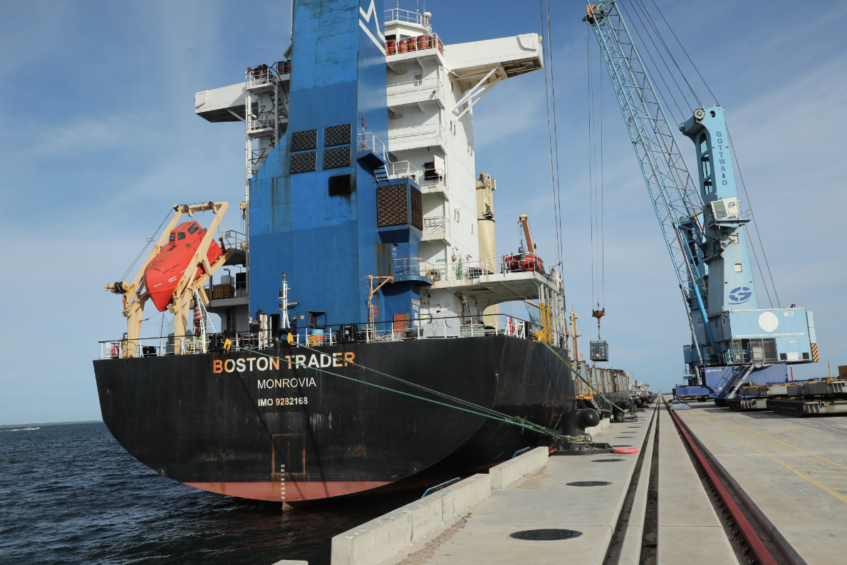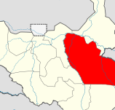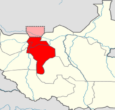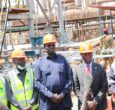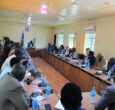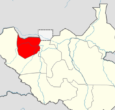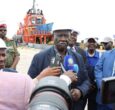Kenya’s quest to increase commercial activities at the Lamu Port has received a major boost with the completion of a strategic plan for related projects by South Sudan.
The neighbouring country which is part of the Sh2.5 trillion Lamu Port-Southern Sudan-Ethiopia Transport (Lapsset) corridor has identified 16 projects that include road networks, the design and construction of the Lapsset Corridor Road and power projects, whose implementation is awaiting funding.
It is also keen on a fiber-optic national broadband backbone, agriculture and irrigation programmes, national petroleum and minerals survey, manufacturing and value addition, transport and logistics programmes, oil and gas, and mining of minerals and strategic environmental safeguard studies, all leaning towards the Lapsset corridor.
According to the senior advisor of the Africa Trade Center to the United Nations Economic Commission for Africa, Adeyinka Adeyemi, they have agreed on roads, power, and agriculture as the first three priority projects to be implemented for South Sudan.
This is a milestone as Kenya continues to develop its infrastructure from the Lamu Port to the borders with Ethiopia and South Sudan.
They include Lamu-Garissa-Isiolo and Lokichar roads.
According to former Lapsset director general and CEO Silvester Kasuku, who is now a consultant with UNECA, the 500-kilometer road from Isiolo to Moyale, as well as the 500-kilometer road from Moyale to Hawasa, has been completed.
Ethiopia has upgraded the road from Hawassa to Addis Ababa into a motorway, easing the movement of traffic.
It has kicked off the establishment of agro-processing industrial zones along the corridor, such as sugar industrial investment.
Mining concessions are also looking to export materials from Ethiopia through Lamu Port.
These developments come as a plus for Kenya’s second major seaport which since its commissioning in May 2021, it has only received 19 vessels with the majority being transshipment business.
Container carrier MV Boston Trader is the most recent to call at the facility which so far has three operational berths, constructed by the Kenyan government at a cost of Sh40 billion.
Sailing under the flag of Liberia on her maiden call, the vessel berthed with 296 Zanzibar-bound full containers for discharge and was expected to load 407 transshipment containers for Zanzibar.
It left yesterday according to Kenya Ports Authority.
A Kenyan delegation of KPA, KRA, Northern Corridor Transit Transport Coordination Authority (NCTTCA), Kenya Railway, Kenya International Freight and Warehousing Association ( KIFWA) and Kenya Ship agents was in South Sudan to engage the business community on the use of Lamu Port.
Main focus was on one border crossing, reduced levies and neighbour hood negotiations with the corridor offering a lower transit distance and time.
According to the Shippers Council of Eastern Africa (SCEA) Gilbert Langat, Lamu Port and the Lapsset corridor are a strategic maritime node for the region, with huge potential to South Sudan and Ethiopian Market for both imports and exports.
“With infrastructure alignment on going to link to South Sudan through Nandapal, it will provide single border crossing for the country to access international Maritime routes same with Ethiopia,” Lang’at who is also the NCTTCA chairman told the Star yesterday.
As the role and place with Port of Mombasa, it has a capacity to support transshipment for regional ports commodity berths and industrial zone transformation and investment, he added.
However for South Sudan to make it work, the country needs to address internal political and cultural structure to facilitate international trade, he said.
“South Sudan has potential to provide sufficient food to the region and also raw petroleum products which currently is exported tied with project support. Value addition and refinery will generate fertiliser, energy, bitumen and refined products,” Lang’at said.
Infrastructure development on the Kenyan side is also being frustrated by insecurity in the Northern region, where the government is fighting al-Shabaab militants activities.
Meanwhile, the Kenya Kwanza administration is courting Dubai and Saudi Arabia multinational logistic companies for a possible investment at the Lamu Port. They include Dubai-based DP World.
According to Investments, Trade and Industry Cabinet Secretary Moses Kuria, the government is open to investors who are ready to construct the remaining 29 berths at Lamu Port, which is envisioned to have 32 berths.
Low budgetary allocation, insecurity, lack of investors and a shaky political goodwill have slowed down implementation of the Lapsset project which commenced during former President Mwai Kibaki’s tenure.

